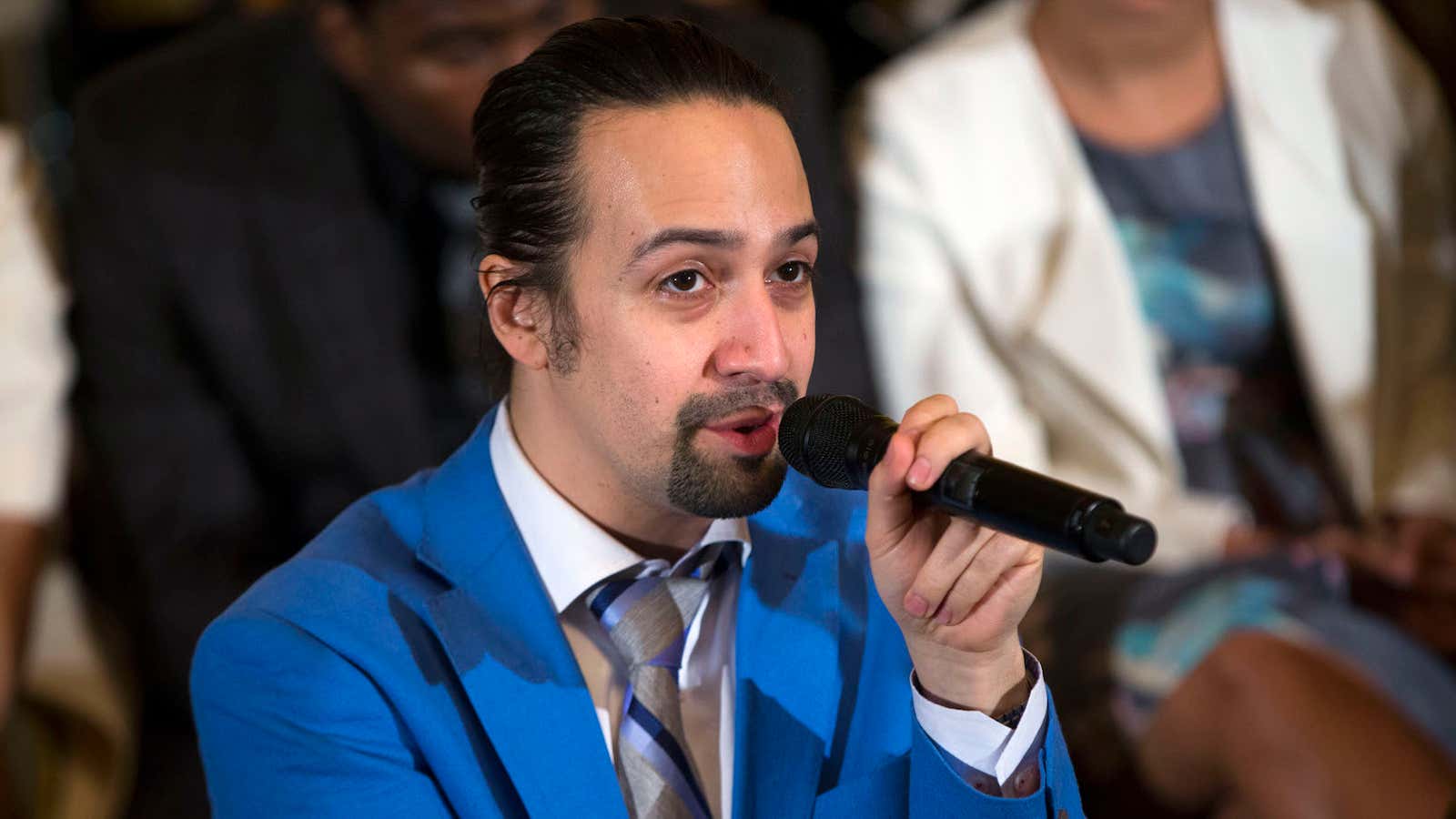Lin-Manuel Miranda has become the toast of the town in Washington DC, since creating and starring in the Broadway hit Hamilton.
The hip-hop musical about the life of Alexander Hamilton—who was the US’s first Treasury secretary and in many respects the father of its financial system—has garnered many fans among the political set, including president Barack Obama and Treasury secretary Jack Lew. Miranda has performed at the White House on numerous occasions, and even freestyled in the Rose Garden with Obama yesterday (March 14).
Now, he’s using his A-list status in the US capital to speak out about Puerto Rico, which is struggling to get out from under a $70 billion debt.
Miranda backed a Senate bill in Washington today (Mar. 15) that would allow Puerto Rico to declare bankruptcy and significantly ease its debt burden. Miranda, whose parents are from Puerto Rico, spoke on behalf of those on the cash-strapped island who face cuts to basic services like healthcare, security, and education.
“We face a financial crisis that triples anything we are experiencing here in the United States. It’s a solvable, fixable crisis and what we really need is help from Congress,” Miranda said. “This is not a partisan issue, not a Republican issue, not a Democrat issue. What we need is the ability to restructure and get Puerto Rico out of the hole it’s in.”
Puerto Rico and its government agencies are not allowed to restructure their debt under US bankruptcy law, as other stressed municipalities including Detroit have, because it is a US territory. As such, some of the commonwealth’s agencies have defaulted on portions of recent debt payments and are in danger of missing more.
The Senate bill, introduced by Democrats Kirsten Gillibrand and Chuck Schumer of New York, would allow Puerto Rico and its public corporations and utilities, like the Puerto Rico Electric Power Authority, to restructure their debts. It also would establish stronger fiscal oversight.
